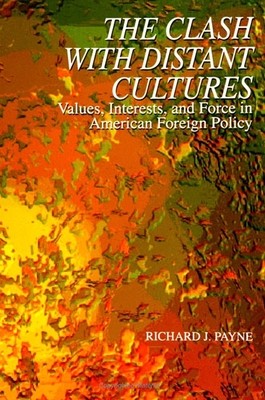
- We will send in 10–14 business days.
- Author: Richard J Payne
- Publisher: State University of New York Press
- ISBN-10: 0791426483
- ISBN-13: 9780791426487
- Format: 15.3 x 23.4 x 1.9 cm, minkšti viršeliai
- Language: English
- SAVE -10% with code: EXTRA
Reviews
Description
Whereas foreign policymaking is generally viewed as a rational, unemotional, and sophisticated process, this analysis of American policies toward the Persian Gulf, the Palestinian-Israeli conflict, and the Bosnian conflict suggests that the underlying and largely unexamined cultural values of most ordinary Americans play a major role in determining the United States' choice of force or negotiation in dealing with international problems. Payne examines the linkage between the United States' tendency to use force in foreign policy and the culture of violence in America. He argues that the costs of resolving conflicts militarily are likely to become more burdensome as economic competitors seek to take advantage of the U.S. tendency to demonstrate resolve primarily through the application of force. Post-Cold War challenges, Payne argues, call for a more nuanced combination of force and diplomacy. He finds hope in the fact that a strong component of American culture favors nonviolence, embraces humanitarianism, and if cultivated can contribute to the peaceful resolution of conflicts.
EXTRA 10 % discount with code: EXTRA
The promotion ends in 21d.23:35:40
The discount code is valid when purchasing from 10 €. Discounts do not stack.
- Author: Richard J Payne
- Publisher: State University of New York Press
- ISBN-10: 0791426483
- ISBN-13: 9780791426487
- Format: 15.3 x 23.4 x 1.9 cm, minkšti viršeliai
- Language: English English
Whereas foreign policymaking is generally viewed as a rational, unemotional, and sophisticated process, this analysis of American policies toward the Persian Gulf, the Palestinian-Israeli conflict, and the Bosnian conflict suggests that the underlying and largely unexamined cultural values of most ordinary Americans play a major role in determining the United States' choice of force or negotiation in dealing with international problems. Payne examines the linkage between the United States' tendency to use force in foreign policy and the culture of violence in America. He argues that the costs of resolving conflicts militarily are likely to become more burdensome as economic competitors seek to take advantage of the U.S. tendency to demonstrate resolve primarily through the application of force. Post-Cold War challenges, Payne argues, call for a more nuanced combination of force and diplomacy. He finds hope in the fact that a strong component of American culture favors nonviolence, embraces humanitarianism, and if cultivated can contribute to the peaceful resolution of conflicts.


Reviews